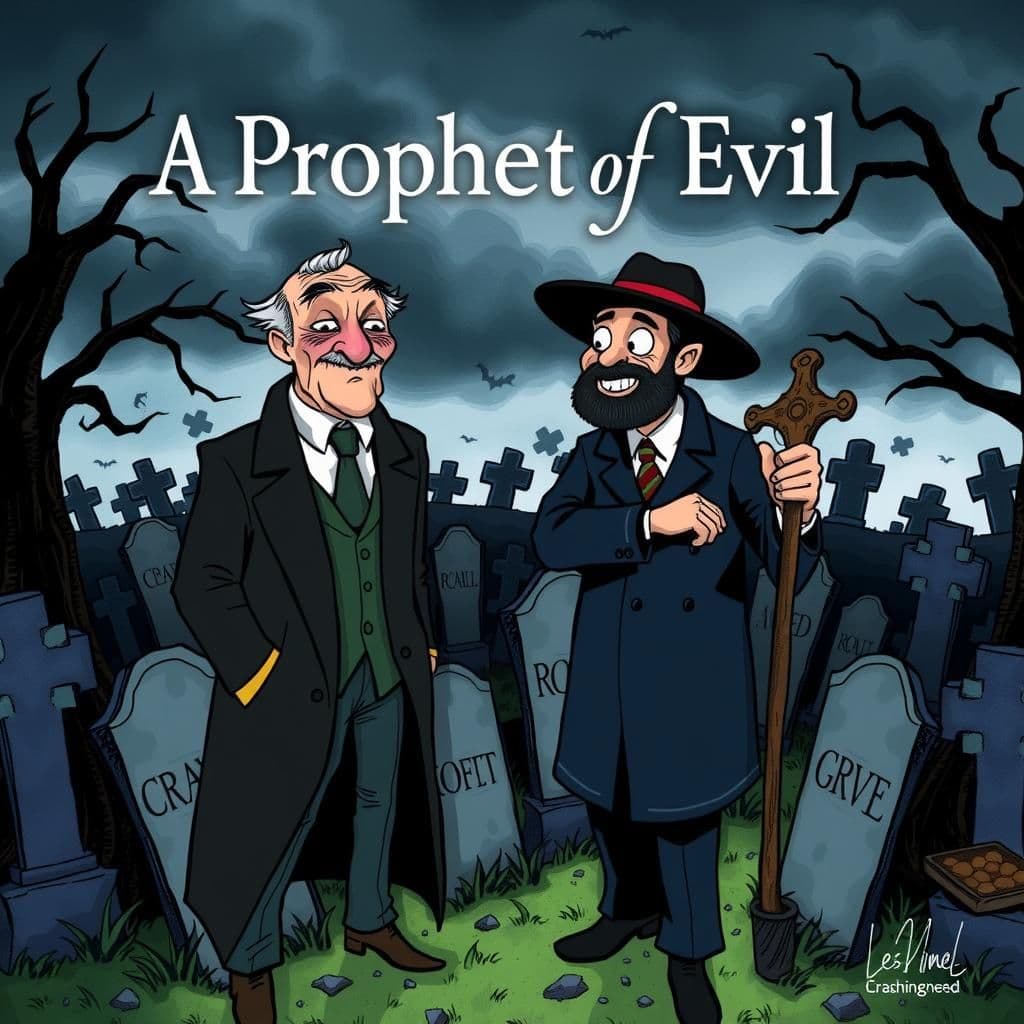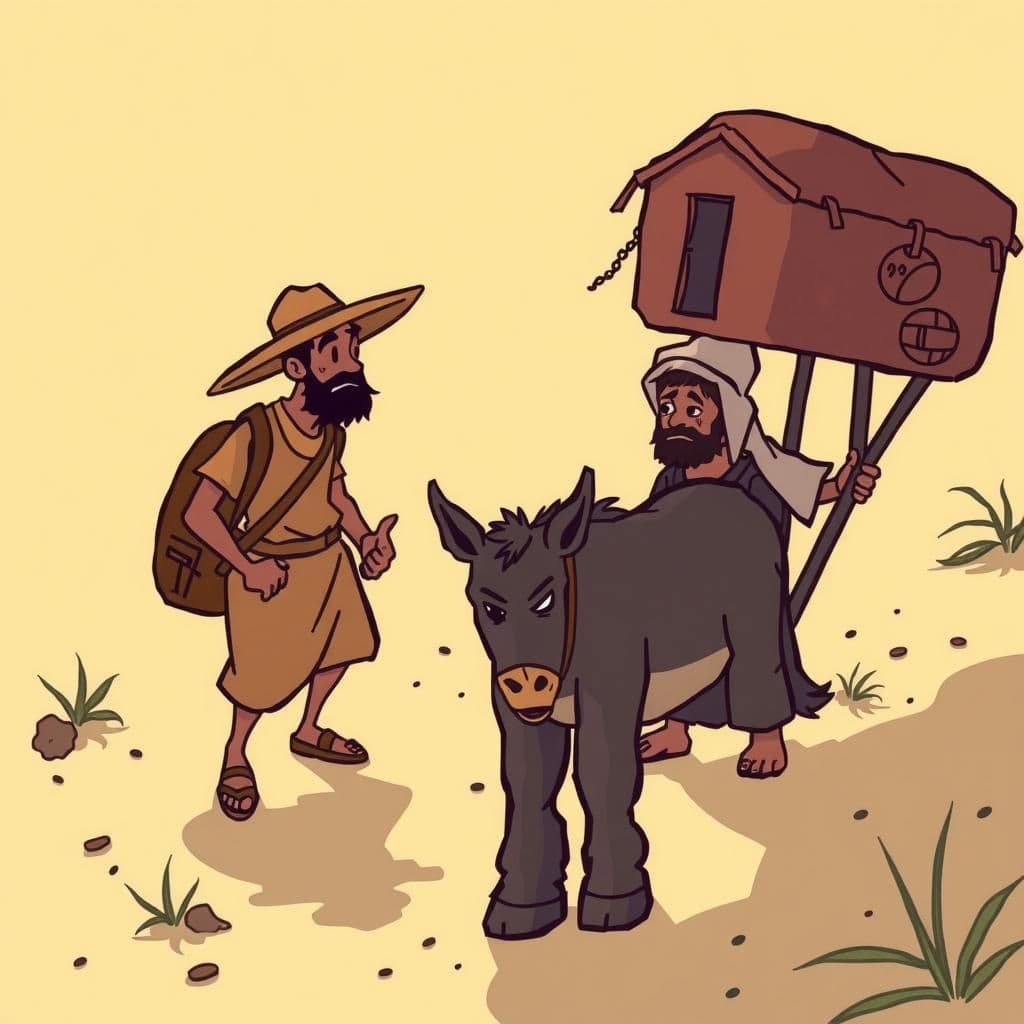A Prophet of Evil
In "A Prophet of Evil," an undertaker encounters a gravedigger who reveals that his union, the Gravediggers' National Extortion Society, is limiting the number of graves to increase profits. The undertaker warns that if people cannot secure graves, they may stop dying altogether, which could have dire consequences for civilization. This engaging moral tale highlights the absurdities of prioritizing profit over essential human needs, making it a thought-provoking addition to the realm of life-changing stories with moral lessons.

Reveal Moral
"The story highlights the absurdity and detrimental consequences of prioritizing profit over societal needs, suggesting that greed can undermine the very foundations of civilization."
You May Also Like

The Ass and His Shadow
In the simple short story "The Ass and His Shadow," a traveler hires an ass for transportation and seeks refuge from the intense heat under its shadow. A dispute ensues between the traveler and the ass's owner over who has the right to the shadow, escalating to a physical fight, during which the ass gallops away. This famous fable with moral illustrates that in quarreling over trivial matters, we often lose what is truly important, making it one of the best moral stories suitable for short bedtime stories with moral lessons.

The Man and his Goose
In this captivating moral story, a man who owned a goose that laid golden eggs became consumed by greed, believing the goose contained a hidden treasure inside. In his haste for wealth, he killed the goose, only to discover she was an ordinary bird and the eggs were no different from regular ones. This entertaining moral tale serves as a valuable lesson for personal growth, illustrating the consequences of impatience and greed in childhood stories with moral lessons.

The Thieves and the Cock
In "The Thieves and the Cock," a group of thieves steals a rooster but decides to kill it, only to have the rooster plead for its life by highlighting its role in waking people for work. The thieves reject his plea, illustrating a key lesson learned from stories: those with malicious intent despise anything that promotes virtue. This humorous story serves as one of the best moral tales, reminding us that the safeguards of virtue are often hated by those who wish to do wrong.